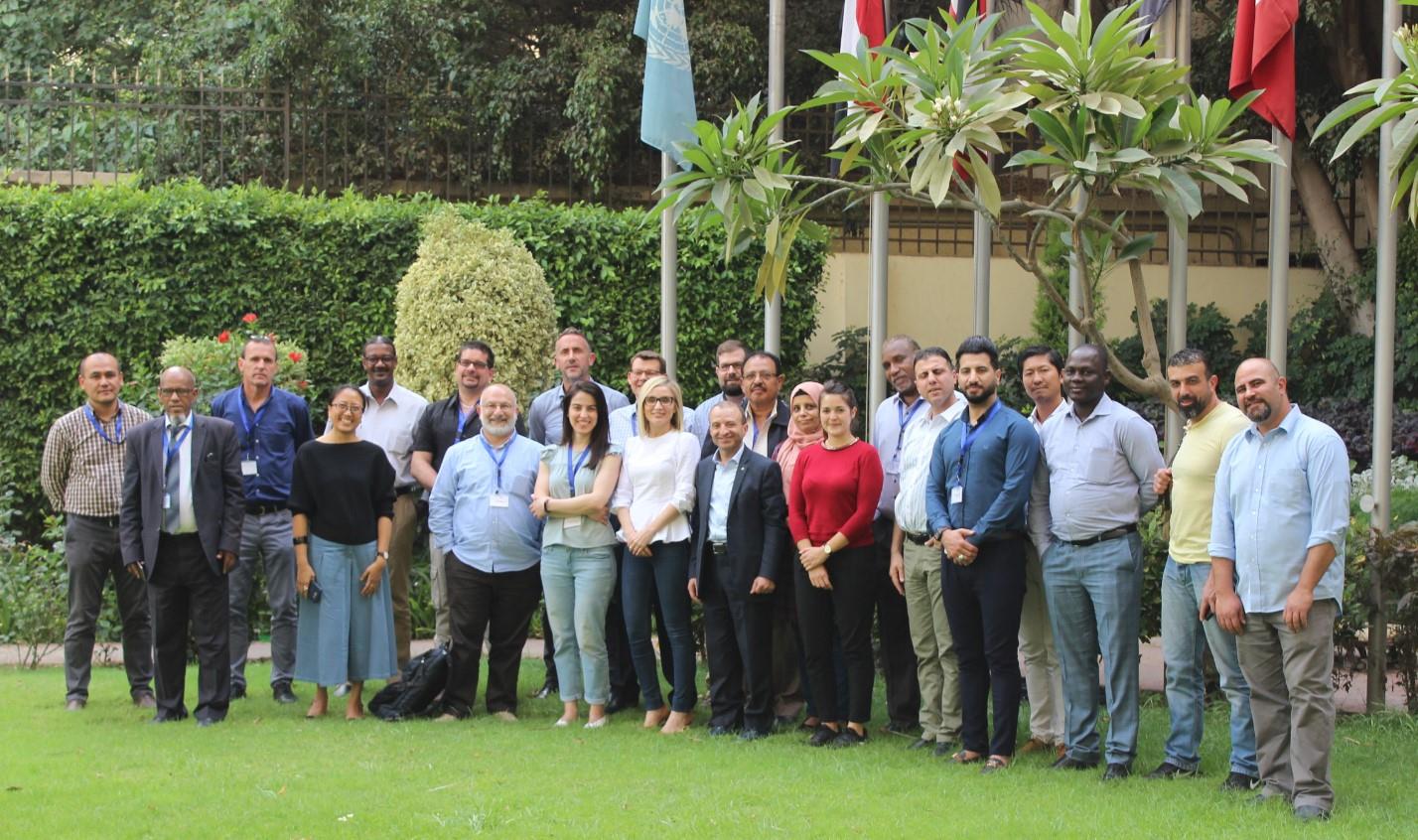Integrating conflict sensitive approaches into FAO programmes

Participants attending the workshop on conflict-sensitive programming in RNE
Conflict undermines resilience and can force individuals and households to engage in increasingly destructive and irreversible coping strategies that threaten their future livelihoods, food security and nutrition.
In the Near East and North Africa (NENA) region, conflict is the main driver of food insecurity. In conflict countries, the level of undernourishment is now six times larger than that in non-conflict countries, whilst the level of severe food insecurity is twice that in others. In Yemen, for instance, 17 million people (60 percent of the population) is severely food insecure.
Conflict is also a main driver of population displacement. Nearly 75 percent of the 67.6 million displaced people globally were forced out by the violence in five countries of the region.
In addition, conflict hinders development and intensifies and consolidates existing poverty. NENA countries affected by conflicts spend 21 to 67 percent of their GDP on conflict-related expenditures
In this context, it becomes crucial to apply a conflict-sensitive lens to our work.
Conflict sensitive programming
Enhancing FAO's programming in fragile and conflict-affected contexts is crucial to support resilient livelihoods, ensuring that interventions do not exacerbate the conflict situation and, where possible, facilitate positive transformations within the area of intervention. Therefore, adopting conflict-sensitive approaches to inform programming is imperative for the Regional Initiative on Building Resilience for Food Security and Nutrition (RI-FSN).
“In a region where over one-third of its countries are affected by conflicts, conflict-sensitive programming is a key priority for the Regional Initiative on Building Resilience for Food Security and Nutrition to support resilient livelihoods,” said Ayman Omer, Delivery Manager of the RI-FSN.
Within the FAO corporate Framework to support sustainable peace in the context of Agenda 2030, and with the support of the Protracted Crisis unit in FAO’s headquarters and Interpeace, the Resilience Initiative organized a three-day training on Conflict-Sensitive Programing on May 1 attended by participants from the most affected countries in conflict or under protracted crises in the region.
With this training, the RI-FSN aims at supporting country offices operating in conflict situations to apply a structured approach and tools to effectively engage in conflict sensitive analysis and design to inform programme development and implementation.
Participants highlighted the importance of including specific tools during the design and implementation of programmes to ensure better understanding of the dynamics and main drivers of conflict amid the changing circumstances of their context.
